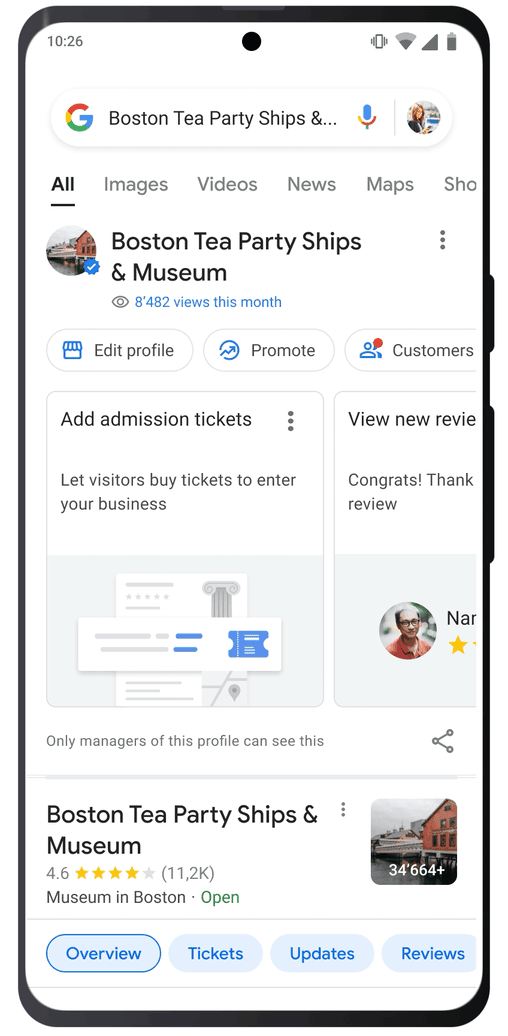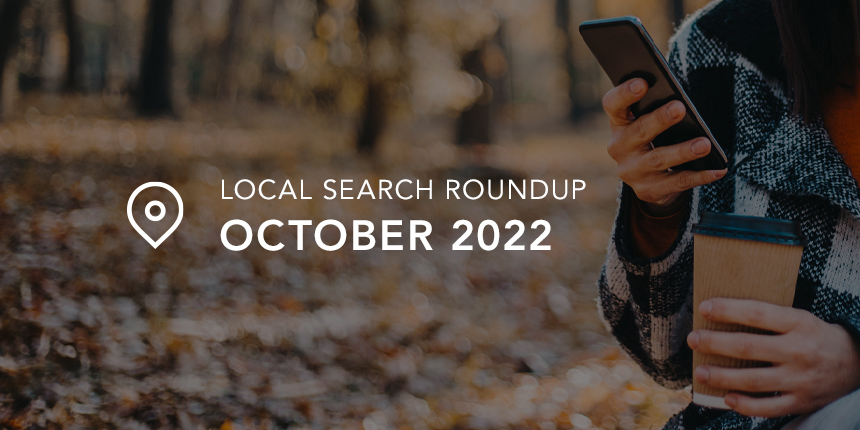We may be heading towards the end of 2022, but the change of pace never lets up in local search. Let’s run through all the updates you need to know before the holiday season arrives!
Google releases an algorithm update one day after its spam update concludes
Unless your business is particularly affected by the issue—such as insurers and locksmiths—you may not appreciate the prevalence of fake websites and listings on Google. The search giant regularly rolls out spam updates to not only maintain the quality of its search results but actively remove bad actors who attempt to steal personal information or hold leads hostage to sell back to legitimate businesses.
Immediately following another spam update on October 22 came an algorithm update. This dual nature of these changes makes it highly likely that many businesses will see ranking fluctuations, especially those who are continually competing to outrank spam. If you are a webmaster and see volatility in your rankings specifically after the two updates in the first three weeks of October, these two updates may be the culprits.
As always, knowing when Google makes these updates may help you understand if subsequent changes are due to something you changed on your website or something Google changed in its ranking algorithm. The appropriate response remains the same: Whether there is an algorithm update or not, follow SEO best practices and maintain a robust organic presence that is less prone to algorithm volatility.
Google tightens its review guidelines
As Google continues its process of becoming the world’s de facto review platform, it is updating its policies to ensure Google reviews are among the most reliable. The search giant, in fact, was one of the first platforms to ban “review gating”, whereby businesses reach out to customers for feedback and only encourage them to leave a Google review if it’s likely to be positive. Since Google first banned review gating—and demanded that all review solicitation requires the option to post directly on Google—other review platforms, like Yelp, have followed suit.

Never one to stand still, Google has updated its review policies once again to keep legitimate reviews flowing. Its revised contribution policy now specifies that businesses cannot engage in the practice of “discouraging or prohibiting negative reviews, or selectively soliciting positive reviews from customers.” Individual policies existed before, such as the aforementioned prohibition on review gating, but the new verbiage acts a catch-all to discourage all forms of review manipulation.
New Google features for travel and tour-booking
The lockdowns of 2020 allowed Google to launch various travel and tourism-focused features in a very controlled environment. In short, the limited number of flights and travelers allowed for low-stakes testing—and now that restrictions are easing, Google is slowly scaling its new travel products.
With Google hotel and attraction bookings now a common feature, we’re starting to see incremental improvements. Case in point is the latest update, which adds three new features to assist in visiting specific attractions.

GIF: Google
- Ticket booking links for attractions:
- On Maps, visitors can now quickly compare admission prices across different partners.
- Edit ticket prices on GBP:
- Attraction owners can now edit their ticket prices and booking links directly on their GBP listings. This was previously done using a third-party connectivity partner. While that option is still available, it is no longer a requirement.
- “Things to do” ads:
- The knowledge panel of individual attractions can now contain paid ad space to show users other nearby attractions. These ads can be set up using the same data feeds that power the free ticket booking links on Search and Maps.
Google’s annual “Search On” event reveals a slew of updates
Google’s annual summit reveals its future plans in various areas, including many relevant to local search. This year, we tallied five significant changes to mobile search, nine new shopping features, and seven updates specifically aimed at local.
Five changes coming to mobile search 📱
How Google displays results on mobile is about to become more visual, with a greater focus on images and video:
-
- Google search shortcuts
- Results in the search bar
- Enhanced query refinements
- Google web stories
- Combining text, images, and video
Nine new shopping features debut 🛒
With the holidays fast approaching, Google decided it was a good time to announce nine new shopping tools and features. During the announcement, Google said the intent was to drive a more immersive, personalised experience:
-
- Search with the word “shop”
- Shop the look
- See what’s trending
- Shop in 3D
- Get help with complex purchases
- See what other shoppers think
- Get personalised results
- Shop your way with new filters
- Inspiration beyond the Search box
Seven local search updates to look out for 📍
These updates will significantly enhance how people explore neighbourhoods, businesses, and restaurants in Google:
-
- Search for restaurants by dish
- Discover restaurant specialties
- More support for digital menus
- Enhancements to Google Maps’ Live View
- Aerial views of famous landmarks
- Immersive view
- Neighbourhood Vibe (check out our coverage of this update here)
Google Business Profile (GBP) removes health and safety attributes
Health and safety attributes were vital when they first appeared on Google listings in September 2020. During the early stages of the pandemic, users needed to know not only if particular businesses were still open but if they had customer and staff safety protocols in place.
Now that most lockdown restrictions are gone, these health and safety precautions are increasingly taken as granted. That’s why Google is no longer asking businesses to specify their health practices and retiring corresponding attributes. If you still see health and safety attributes on your listings, they will be removed with time; the ability to add health and safety protocols has already been deactivated.
Want to be fully prepared for the next round of changes in local search? Start by partnering with the experts on our Local Listings Management team to get ahead of the curve. Let’s talk!




